07.10.22 Spellings
Next week, we will be learning about suffixes – adding –ing and –ed to change the tense of words. Learn these words at home – maybe write some silly sentences or speed write them as many times as you can.
according
achieved
criticising
determined
embarrassing
developing
guaranteed
queued
Please practise these words ready for a spelling test on Friday 14th October.
This week’s message (Friday 07 October 2022)
It certainly feels like Autumn these days – as well as shorter days and autumn colours, another sign of Autumn is the excited children showing us their conkers collected on the way to school! This week’s message includes two important messages (about medical conditions and attendance), and two more parts (about communications and this week’s Watch Us While We Work).
Attendance update
In the last school year (2021-22), the national average was 95.4% attendance. Our school attendance was 93.1% – quite a bit below the national figure.
We all know that attendance matters – the more your child is in school, the more they learn and the more they develop social skills.
Attendance is even more important following the disruption in learning caused by Covid – we’re now starting to identify gaps in learning and working hard to address this, but we need your child at school.
Please remember we won’t authorise holidays in term-time absence. For some, we also expect to see evidence of illness before we authorise an absence.
Thank you to everyone who makes sure their child is in school as much as possible.
Medical conditions
When your child joins school, we always ask about any medical conditions so we can support your child in school. This includes letting us know about allergies. This is a reminder only: please do make sure you tell us about medical conditions, especially nut allergies and other food allergies. Based on what you tell us, we’ll make reasonable adaptations to meet your child’s needs.
A word about how we communicate
A small number of you told us in the Summer 2022 annual parent/carer survey that we send home too many communications. We’ve thought hard about the comments, but also considered other feedback that tells us you welcome how we communicate. In the end, we’ve decided that we’re getting it about right for most of you. However, we thought it might be useful to let you know the different ways that we communicate things with you.
Firstly, anything urgent (such as the cancellation of an after-school club) or a quick reminder about something (like the photographer being in school) is sent by text. If you have the School Gateway app, it may be useful to set it so you receive notifications of messages. Texts are automatically sent to your app, if you have it installed (it’s free for us to communicate with you this way).
The weekly Friday message contains important information (eg nuts, attendance and about things coming up, such as parent-teacher meetings) as well as other information that we think you might find useful (eg like this one). We usually use sub-headings to help you navigate the message so you can find the information you need.
Most letters are emailed out to you, too. We’re moving away from sending out hard copies of letters (it’s better for the environment to send things electronically and things sometimes don’t always get to you if they’re sent home in book bags). Please try to check your emails daily, so you don’t miss anything important.
For anything relevant to your child’s class, check out the Class News pages of our website (we recommend doing this at least once a week). Nursery and Reception tend to put reminders on their Class News page, as they don’t have a homework page.
Your child should bring home a hard copy of their weekly homework, but you’ll also find it on the Homework page of the website.
Finally, we do have Facebook and Twitter. These just provide additional little snippets, if you want them, but nothing urgent or important will be posted on social media as we realise that not everyone accesses these things.
Finally, a thank you…
…to everyone who attended this week’s Watch Us While We Work session. It was great to see so many of you in school, keen to get a flavour of school life (eg ‘Really nice to see class routines and how engaged the children were’) and to pick up some tips to help you continue to support your child at home (eg ‘Putting things in a bag and taking a few out to help counting’).
Look out for the next session: Thursday 26 January 2023.
Have a happy and healthy, awesome and autumnal weekend!
Week 5
This week our focus story was ‘The Everywhere Bear’. In the story the bear gets lost and go on lots of different adventures until he finally gets back to school. We used pictures to help sequence the story and thought about how the bear must have been feeling. We decided we would like to create bear ears so we could be bears too. We used careful cutting skills to create a headband and ears.
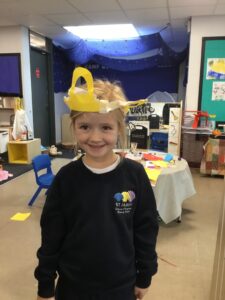
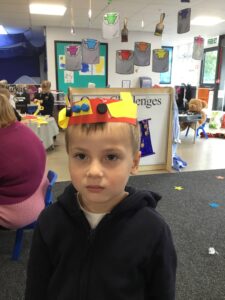
We are continuing to build our hand and finger strength by doing lots of different funky fingers activities. This week we created bear faces in shaving foam and had a timed challenge! We had 1 minute to get as many Autumn objects out of our tray as possible. It was very tricky using tweezers but we all had great fun trying.
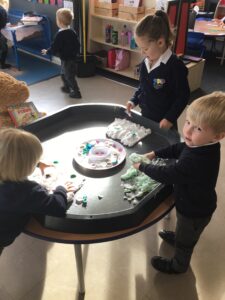
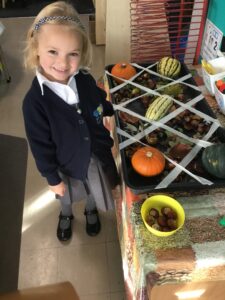
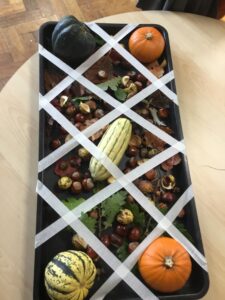
On Thursday we went on our Autumn local walk. We were all very excited to wear our wellies and go exploring in Wetherby. As we walked away from school we used our senses to explore our surroundings. We discovered that the trees we saw had lots of different coloured leaves and that some of them had fallen onto the ground. We had an amazing time collecting things that reminded us of Autumn. Please look out for how we get creative with these things next week! If you go on any Autumn walks we would love to hear about them too.
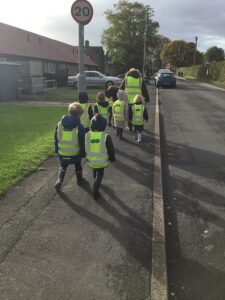
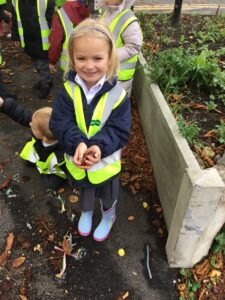
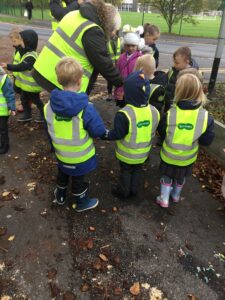
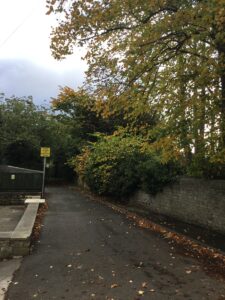
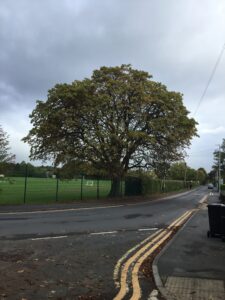
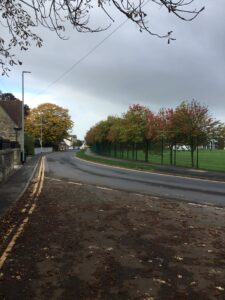
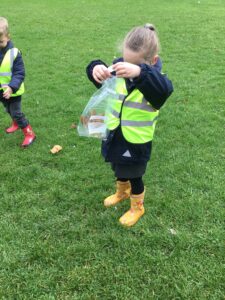
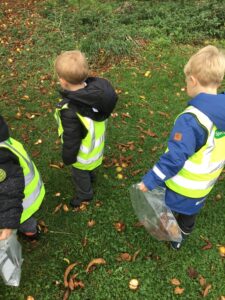
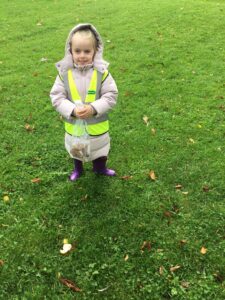
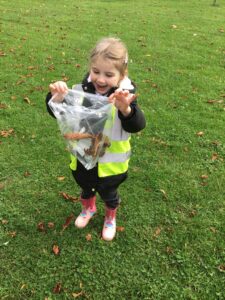
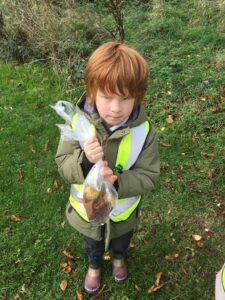
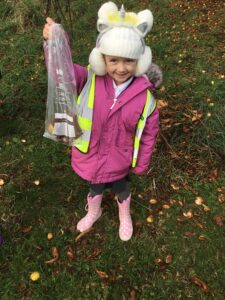

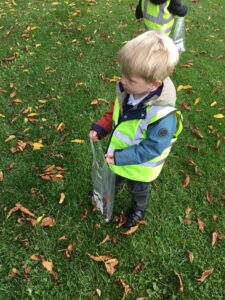

Thank you for working hard at home with e-books. It is fantastic that everyone is reading at home and in school everyday. If you have got any questions about phonics we are holding a parent drop in on Thursday 13 October. This is an opportunity for you to come into class and take part in a live phonics lesson. The session begins at 9am and finishes at 9:30.
As always, if you have any questions or would like to share any home learning including family photographs with us please use our reception email stjamesreception@spherefederation.org.
Have a great weekend.
Mrs Payne
07 October 2022
Below are the new spellings for the next two weeks. On the first week, use the look, say, cover, write, check method. On the second week, write the words in the air.
- has
- he
- here
- his
- house


07 October 2022
This week’s Talk Time relates to the knowledge we’ve gained about History this half term.
I can show off my knowledge of history.
Years 1 and 2 – The Great Fire of London:
I know and can use words and phrases relating to time and chronology (eg old, new, past, a very long time ago, present, ancient, modern).
I know what houses were like before the Great Fire of London and that fires were quite common.
I know that Samuel Pepys’ diary helps us to know what the Great Fire of London was like.
I know why the fire spread quickly and how it was eventually put out.
I know what changed as a consequence of the Great Fire of London.
Years 3 and 4 – Ancient Greece:
I know that ancient Greece was divided into many city states and I know that Athens and Sparta were the most powerful. I know some of the main characteristics of the Athenians and the Spartans.
I know about the influence the gods had on Ancient Greece.
I know about the influence Ancient Greece has had on the Western world (e.g. philosophy, arts, science, maths, literature and politics).
I know that democracy is a Greek word meaning ‘government by the people’ and that our government today is a legacy of the Athenian assembly and council.
Years 5 and 6 – Stone Age to Iron Age:
I know how Britain changed between the beginning of the Stone Age and the Iron Age.
I know the main differences between the Stone, Bronze and Iron Ages.
I know what is meant by ‘hunter-gatherer’.
I know about and can name some of the advanced societies that were in the world around 3000 years ago.
I can compare life in Britain 3000 years ago to life in Ancient Egypt.
I know that the Ancient Egyptians had a writing system called hieroglyphics.
I know that the Ancient Egyptians built pyramids as tombs for pharaohs and that the biggest was built around 2500BC.
At school, we refer to 8Rs to promote good learning behavior. Check out the 8R’s for learning. See how many your child knows.
This week’s ‘Remember 2s’ (R2s) directly link to three of the 8Rs:
- Remember – Think back to history lessons, learning, tasks, games etc.
- Reflect – Which facts are you most confident with? Which ones do you need to work on?
- Resourceful – For facts you’re unsure of, how can you improve your understanding? Who could you ask at home or at school?
Additionally or alternatively, you might like your child to consider our current Christian value…
At St James’ CE Primary School, we learn about Christian values that help us to become well-rounded citizens in society. The values are woven into our everyday school life. Each half term, we have a new Christian value that will be embedded into our collective worship and our reflection areas.
This half term, our Christian Value is perseverance.
Perseverance is needed when standing firm in the face of any difficulty. It is the special gift that we have when life is difficult or painful that helps us not to give up. Difficulties might include hardship, persecution or scorn, although we hope these difficulties do not arise in our school. We use it more in the context of ‘keeping going’ and ‘not giving up’.
This week’s Talk Time homework is all about persevering when the going gets tough.
Set yourself a really tough challenge. This could be learning to tie your shoe laces, walking to school backwards, learning to draw a difficult animal or any other ideas that you have.
Talk to a grown up about the challenge you set yourself. Why did you choose this challenge? How did you show perseverance? Tell your teacher all about the challenge you set yourself and how you felt when you needed to persevere.
Spellings
Our new spellings for the next two weeks will be:
of, once, one, our, pull, push, put, said, saw, says.
Why not try our super spelling strategy?
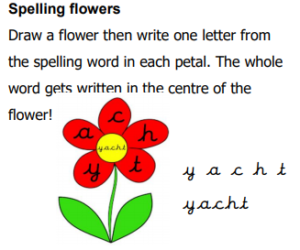
Friday 07 October 2022
There have been two sets of spellings handed out this week. Your child will have been given the correct spellings for them to learn.
This week, our spellings focus on dropping the y for i when adding ed and keeping the y for ing. Make sure you spot the different suffix, too!
worry – worried
carry – carried
happy – happiness
ugly – ugliness
creepy – creepiest
funny – funniest
sorry – sorriest
reply – replying
copy – copying
marry – marrying
OR
This week, our spellings focus on words we sometimes spell incorrectly in our writing:
with
what
said
which
where
why
could
should
would
who
Science: What’s living in our school grounds?
Check out how we got on in our science lesson…
Awesome biology learning from Jacob, Murielle, Liam and Ralph – super scientists!
TT Rockstars
Just a reminder to practice our times tables as often as possible. We have a weekly focus, this week it will be 2s,5s and 10s.
TT Rockstars is a really fun way of doing this! I have set the year 3 pupils accounts to our weekly times tables focus, so it will be easier to access.
Your child’s login will be stuck inside their reading record. If you need this again please just ask!
Microhabitat hunters
In our science lessons, we have been learning all about living things and their habitats.
We went on a microhabitat hunt around our school to see if we could find any microhabitats and who or what was living there. We found many creepy crawlies hiding under a log including woodlouse, centepedes and worms.




